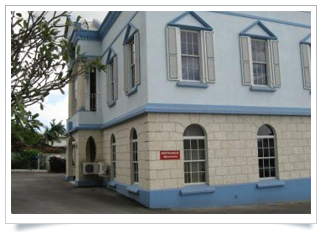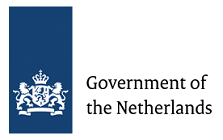 |
 |
The Caribbean Regional Technical Assistance Centre (CARTAC) is one of ten IMF Regional Technical Assistance Centers (RTACs) located around the world in the Pacific, the Caribbean, in Africa, the Middle East, India and Central America. These Centres were created to help countries strengthen human and institutional capacity to design and implement sound macroeconomic policies that promote growth and reduce poverty. The CARICOM Council of Ministers of Finance and Planning (COFAP) took the decision to establish the CARTAC in September 1999 and it became operational in November 2001. WHY WAS CARTAC ESTABLISHED? Countries in the region face similar problems in meeting the standards of economic and financial governance expected of them by their citizens, and by domestic and international investors. CARTAC was created to help develop skills in the specialized areas required to design and implement measures to meet these standards at both the national and regional levels. |
WHO FUNDS CARTAC?
Now in its sixth phase of operations, the government of Canada continues to provide the largest share of the Centre’s funding which is complemented by contributions from the United Kingdom (FCDO), the European Union (EU), the Government of the Netherlands, the Caribbean Development Bank, and the Eastern Caribbean Central Bank. The Government of Barbados finances the costs of office facilities, while the other 22 beneficiary countries make annual contributions to the Centre’s operating expenses. Other contributors to previous phases of CARTAC include Australia (AUSAID), the Government of Mexico, the Inter-American Development Bank (IADB), the United Nations Development Programme (UNDP), Ireland and the World Bank (WB).
HOW DOES CARTAC OPERATE?
CARTAC operates as a regional resource centre of the International Monetary Fund headed by a Director appointed by that same institution. The priorities of CARTAC are set by a Steering Committee (SC) consisting of representatives of recipient countries, donors and the IMF. In addition to setting its priorities, the SC provides strategic guidance, provides input on topics to be covered by the team of resident as well as short-term advisers, and endorses the Centre’s work plan on a six-month basis.
The Director is responsible for the day-to-day management and operations of the Centre under the strategic guidance of the Steering Committee and general oversight from the IMF.
CARTAC like all of the Fund’s RTACs, combines local expertise and on-the-ground capacity building with strategic advice from IMF headquarters. All technical assistance (TA) is integrated into the IMF’s lending and surveillance operations, and coordinated with other IMF TA as well as that of other providers. All TA is backstopped by IMF headquarters, ensuring quality and consistency of policy advice.
GOALS & OBJECTIVES
The resources of CARTAC are available to:
– Undertake diagnostic work to identify and design measures needed to strengthen specific aspects of economic and financial governance;
– Prepare detailed plans, and assist in the implementation of those plans;
– Review proposals or assessments by governments or other donors for consistency with internationally agreed standards;
– Provide hands-on technical advice and training either by the centre’s own advisers or by specially contracted CARTAC consultants;
– Organize training courses, seminars, workshops and the dissemination of best practices;
– Arrange professional attachments for skills enhancement and development.
CARTAC provides technical assistance in six core areas:
– Public Finance Management: enhance budget execution, expenditure control, and revenue collection monitoring; reform treasury systems and upgrade cash and debt management procedures; modernization of financial accounts and reporting; implementation of GFS financial statistics classification; formulation of modern financial management legislation; overall strengthening of human and institutional capacity within Ministries of Finance and revenue collecting organizations.
– Tax and Customs Administration: undertake assessment of tax systems and assist with the design and implementation of tax reforms; suggest simplification of tax operations; assist with the preparation of the legislative framework for tax and customs administration; assist with the implementation of more effective compliance control tools for tax and customs legislation; propose adaptation of customs operations to meet international agreements.
– Financial Sector Supervision & Financial Stability: Strengthening laws and regulations governing financial institutions and capital markets using harmonized approaches where possible; Enhancing domestic and off-shore bank supervisory procedures in accordance with international best practices; Strengthening the regulation & supervision of non-bank financial institutions, including insurance companies, credit unions and capital markets intermediaries; Implementing international accounting standards for financial institutions and reporting issues; Enhancing corporate governance standards and transparency regimes for the benefit of investors; Assisting with the introduction of depositor protection mechanisms; Assisting with the preparation and implementation of an anti-money laundering/terrorism laws and procedures
– Debt Management: This work program was launched in late 2020 to deliver dedicated support to CARTAC member countries in managing government debt. The program extends across the full range of activities in debt management with an aim to build capacity to:
- Manage the cost and risk of public debt, through the formulation of medium-term debt management strategies, the preparation and implementation of annual borrowing plans, and reforms to the institutional and organizational arrangements for debt management functions;
- Raise market-based financing and diversify financing sources, through the development of local-currency government securities markets, improved access to a wide range of markets and creditors, and exposure to innovations in financing for governments, such as green bonds and climate-resilient debt instruments; and
- Ensure debt transparency, through comprehensive and timely reporting of debt stocks and flows and debt policies.
- Economic and financial statistics: assist with the improvement of the quality of macroeconomic statistics, including: national accounts and price indices, balance of payments, external debt, and monetary and financial statistics; establish and maintain underlying basic data collection; guide in the use of concepts and internationally accepted methodologies; develop compilation procedures, including data preparation, verification and computerization; assist in the dissemination of data.
– Macroeconomic Programming Analysis: provide hands-on training in the preparation of macroeconomic projections and analysis of policy options.
Development Partners
 |
 |
.png) |
 |
 |
 |

